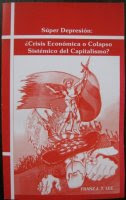Achieving big things in small spaces ...
Towards Venezuelan food sovereignty
By: Jutta Schmitt
Under the slogan "Big things can be done in small spaces", on Saturday, October 16 th , in the preschool facilities of the small community of Las Mesitas de Higuerones, located in the Parish Ignacio Peña Fernández, of Campo Elías Municipality in the state of Mérida, an ecological training project was presented, titled: ''Agriculture and nutrition with the use of ecological techniques: Camacho Dugarte Family Garden“.
Under the National Training Program for Agriculture and Nutrition, guided and supervised by Professors Simón Hoyo and Marcial Bracho, agronomists and coordinators of that program in Merida, a group of female students from the Technical College Institute of Ejido (IUTE) presented the results of their one years' work, realized in the community of Las Mesitas de Higuerones with the objective of developing an agroecologial Family Garden Project.
Professor Simón Hoyo opened the event with words of welcome to the community members who had come to the place, and first referred to the great personal responsibility implicated in the participation in this important project, which forms part of the National Government's policy to establish food security for the Venezuelan population. He then told the audience that the agroecological Family Garden Project has a total duration of one year and is performed in three consecutive stages, that is, the diagnosis and location of the community and family on whose land the project will be realized, the stage of implementation or execution of the agroecological activity as such, from planting to harvesting, and finally, the presentation of the work that's been performed to the members of the community concerned.
Subsequently, the five students who had carried out the project, applicants to the degree of Ecological Agronomist, Ana Camacho, Keila Molina, Kerly Toro, Coromoto Paredes and Yamilet Rojas, proceeded with the presentation, step by step, of the project: ''Family Garden, Dugarte Camacho Unit.''
The general objectives that had been set up included the establishment of a home garden by means of ecological techniques, the comprehensive protection of the environment and human health, obtaining healthy and tasty products, the improvement of quality of life, providing support for family supplies, and the promotion not only of family unity, but of the unity and cooperation of the entire community. Among the specific objectives, the students mentioned the optimal use of a basically limited, physical space and the planting of vegetables suitable for the region, with their selection depending primarily on agro-climatic conditions, which, in this case, resulted in the selection of green onions, cilantro, sweet pepper, paprika, tomato and lettuce, including the planting of four aromatic species according to the basic requirements of agro-ecological techniques, in this case, basil, rosemary, aloe and tobacco.
The methodology applied divided the project into two phases, the 'office' or planning phase which included data collection and the selection of the community, and the 'field' or application phase with the corresponding diagnostic of the objective conditions present, and the proper implementation of the project itself.
After having selected the community and family that would provide the physical space for the project, the students proceeded with the demarcation and adaptation of the selected area, namely the preparation of the field and loosening-up of the soil, the building and leveling of plant beds, and the preparation of the soil substratum including its disinfection and subsequent fertilization with organic fertilizer, such as the application of humus or compost, which is a substance composed of organic products stemming from the decomposition of organic waste in a compost pile or bin. Regarding the disinfection of the substratum to prevent the emergence of weeds, the students explained to the community members present, that, for this purpose, the soil is placed in a box, irrigated with hot water and then covered with a dark plastic foil with the aim of intensifying the temperature, leaving it covered for approximately three days, depending on the microclimate of the place. After having prepared the substratum, the students went to obtain the seeds (some certified) that were purchased from the local retailers and the farmer's market.
With regard to the planting and later transplantation of the saplings, the students emphasized the importance of the control and prevention of infestation and disease by inserting, in various parts of the garden, a variety of herbs and aromatic species such as rosemary, basil, yerba santa, peppermint, aloe and tobacco, which have the function to keep pests away from the crop plants, apart from being highly beneficial to human health as they are medicinal. The inclusion of such plants is also promoting the revival of the knowledge and application of our highly effective and powerful, natural, ancestral medicine.
In what could be called the topical application of 'organic insecticides' in case of a contamination of plants with pests, the community members were informed that excellent results can be achieved without resorting to the kind of harmful, chemical pesticides that have done so much damage to our soils, by spraying a mixture of onion, garlic and vinegar - liquefied in a liter of water, percolated and then diluted with pure water - onto the affected plants. Equally effective is the maceration of the leaves of a local tree called 'Rabo Ratón', diluting the juice extracted from the leaves with water, and spraying it onto those plants infested with pests.
The harvest obtained in a fairly limited space, only a few months after planting, was 6 kilograms of paprika, 6 kg of tomatoes, 5 kg of sweet pepper, 3 kg of cilantro, 5 kg of lettuce and 2 kg of onions. After the presentation of the project, when inspecting the Family Garden in question, the community members could appreciate 'live' the nice appearance and taste of these items produced exclusively with ecological techniques and virtually zero production costs, given the fact that recycled material and supplies had been used for nurseries and other devices.
Ending their presentation, the five students concluded that creating an ecological home garden is easy to do and inexpensive, as it encourages the recycling of used materials that can be applied for the construction of plant beds, nurseries, compost bins and other devices. In addition, agro-ecological activity not only promotes family unity but at the same time, neighborhood and community integration, promoting mutual learning among all parts involved and encouraging participation in a new experience with highly gratifying results.
The students called on those present to adopt a healthy diet to the benefit of their health and that of the environment, two objectives that can precisely be achieved through the construction of a home garden under agro-ecological principles and techniques. They wholeheartedly thanked their teachers, classmates, colleagues, family and community members for their cooperation and support and, in turn, received a warm applause from the audience for their excellent performance and hard work concerning this recommendable project.
After the presentation Simón Hoyo intervened with a comment on the nature of this project and explained that this is a type of project that is in harmony with our reality and therefore allows us to undertake a comprehensive, human and natural development in the very space in which we find ourselves, with the help of the natural and human resources available therein. He said that in this way we can contribute directly from our communities with the long term vision of the country in accordance with Article 305 of our constitution, which stipulates food security based on sustainable agriculture as one of its pillars. In addition, Hoyo warned that in the face of the environmental and climatic crisis our planet is confronting, it is absolutely necessary that we humans step down from our illusory throne and put ourselves in our real context, that is, from a a cosmological point of view, understanding ourselves as infinitely small and insignificant beings. We're not the greatest thing on the planet, and much less can we claim the right to subdue the Earth and other forms of life to our destructive whims. He ended his comment by stressing that all teaching and learning that is generated in any of the educational institutions in our country, necessarily has to include the communities in order to transmit and at the same time generate, new knowledge and new values in a process of mutual respect and learning.
By way of a general conclusion, Marcial Bracho expressed his thanks to the community of Las Mesitas, to its Community Council, to the tutor, the students, the audience and to the writer of this report, intended to share the experience of this extraordinary project with the readers of this article. Referring to the example of the young students, Bracho pointed out the overwhelming importance of a comprehensive education of our youth, who has to be skilled and responsible to our society and country, given that it has to replace the older generations in a not too distant future. He highlighted that in this sense, the National Government's educational policies, in this case with regard to the teaching and application of ecological agriculture and nutrition, are addressed directly and specifically to the 'end user', that is, the people, the communities, to each and everyone of us. He regretted that the vast majority of our universities keep being isolated and exclusive places, enclosed into their four walls, unable to intertwine in an integrated way with our communities so as to share their teachings with the people and to help them solve the problems that affect them. He stressed the need for a comprehensive, humanist education, not only for our youth but for ourselves, so that we may learn to be servants of our communities and to always act under the principles of love, solidarity, equity, social justice and inclusion, our own ancestral values that have gotten lost in this perverse dynamics of capitalism which only promotes individualism, selfishness and greed. In this sense, Bracho evoked the formation of the new man with a deep sense of humanism and a new ethics.
He reminded the participants that the environmental problems that have emerged on a global scale like the destruction of the ozone layer, climate change, the pollution of soil, air and water, and deforestation, affect all of us without exception and can only be resolved by means of a humanist and ecological vocation, reason for which the importance of agroecology and its immediate application becomes so obvious, and whose feasibility has been conclusively demonstrated by the project presented.
He concluded his intervention by saying that the National Training Program for Agriculture and Nutrition currently has 54 home garden projects running nationwide, and that the five students form part of the first cohort of this program who will be promoting the development of organic food production with the purpose of establishing food sovereignty for our country in the future.
It is worth noting the significance of this interesting experience because, if effectively multiplied on a national scale, it will no doubt be a decisive step in the battle against the globally imposed, harmful, capitalist practices which use food as an instrument of domination. But then, and to definitely ensure our long-term food sovereignty, we must 'go to the grain', so to speak. The seeds are the 'alpha and omega' of agriculture and constitute its essential means of production. Since time immemorial, seeds were obtained naturally from crop and exchanged among farming communities. They were common, social property and had the power to self-reproduce by virtue of their natural cycles.
Only with the consolidation of capitalism and the industrialization of agriculture began the conversion of seeds into a commodity, and thus began the process of their modification, privatization, patenting and full integration into the perverse mechanisms of the capitalist market. Far from being regarded as the sources of our life and food, seeds have been converted into catalysts for the expansion of markets and profits, and therefore they had to suffer modifications which have induced and increased their dependence on chemical fertilizers and pesticides, and simultaneously have reduced their fertility and capacity to self-reproduce. The integration of various branches of science and production techniques such as chemistry, biology, pharmaceuticals and genetic engineering, along with the introduction of patents on seeds and accompanied by a process of concentration of capital, has led to the monopolization of the seed market by a handful of agribusiness corporations like Monsanto, Syngenta, DuPont and Bayer, who are among the 10 largest seed companies that together control 57% of the global market. Monsanto, based in the U.S. is the world's largest transnational seed company which holds 90 per cent of patents related to agricultural biotechnology and which controls a fifth of the global seed market. The patents owned by these multinationals give them the power to control planting, harvesting and the reproduction of seeds, and are placing into their hands the almost exclusive decision over the type of items to be offered on the international market, always determined by calculations of the highest profit possible. And who controls the seeds, controls the global food production.
This is why it is absolutely necessary to develop a strategy for food sovereignty, which, together with the promotion of agro-ecological techniques in the family and community-based production of food, includes the right and duty to preserve, reproduce and exchange natural, native, non-modified seeds, as well as the building of a national seed bank in order to store seeds of crop plants and wild plants, so as to counteract the loss of biodiversity and to conserve and restore native varieties. This strategy should also include the relentless struggle against the patentability of plants, animals and even ancestral knowledge, as determined by Article 124 of our Constitution.
In any case, thanks to the enthusiasm and vocation of some young students and their teachers, members of the National Training Program for Agriculture and Nutrition, this past October 16th in the community of Las Mesitas de Higuerones, joy and hope and a formidable sword have been sown to lead the fight for food sovereignty from the heart of our communities.
http://english-juttaschmitt.blogspot.com
jutta@franzlee.org.ve













No comments:
Post a Comment